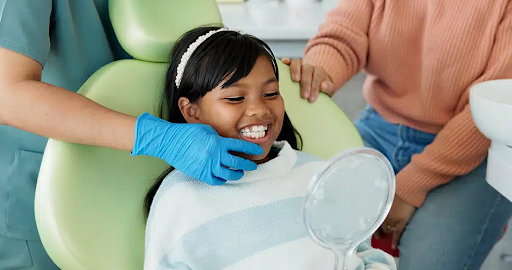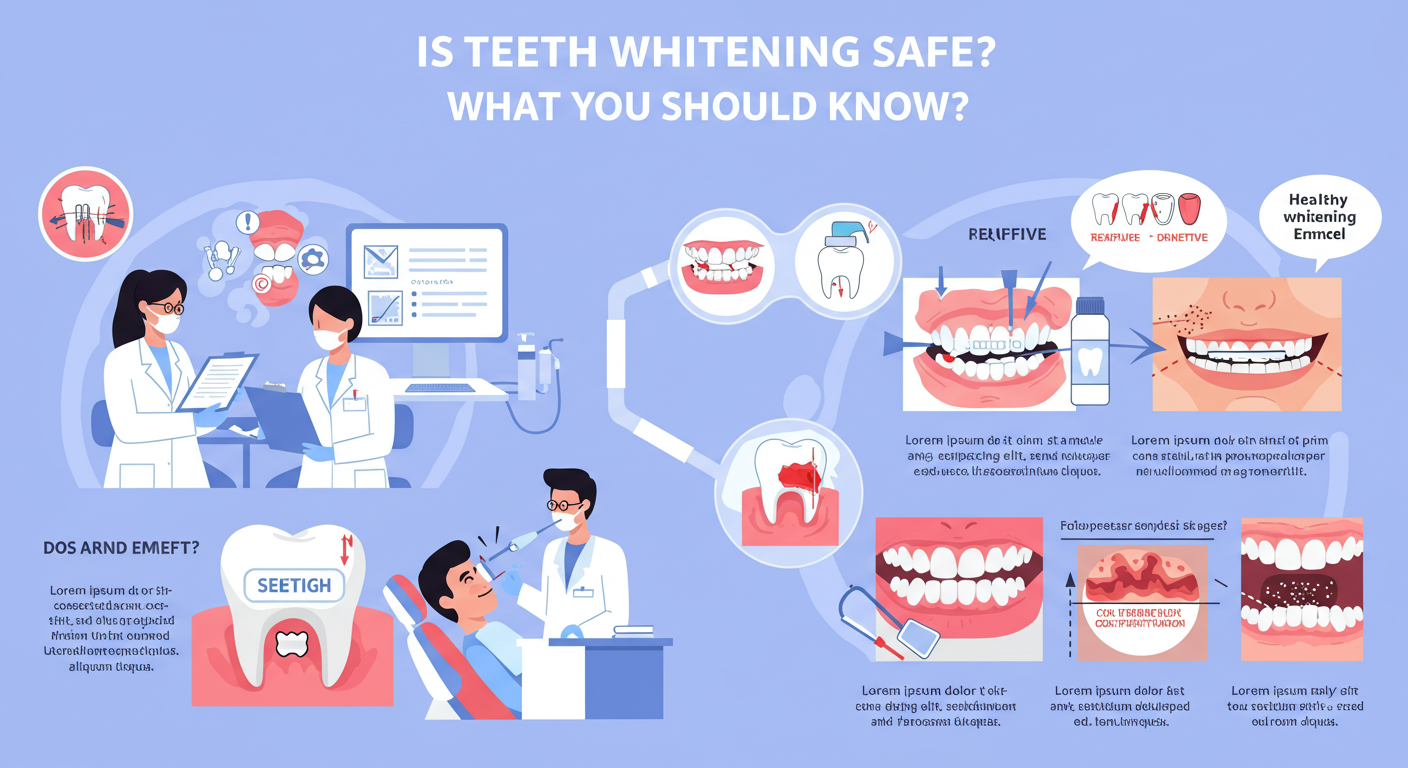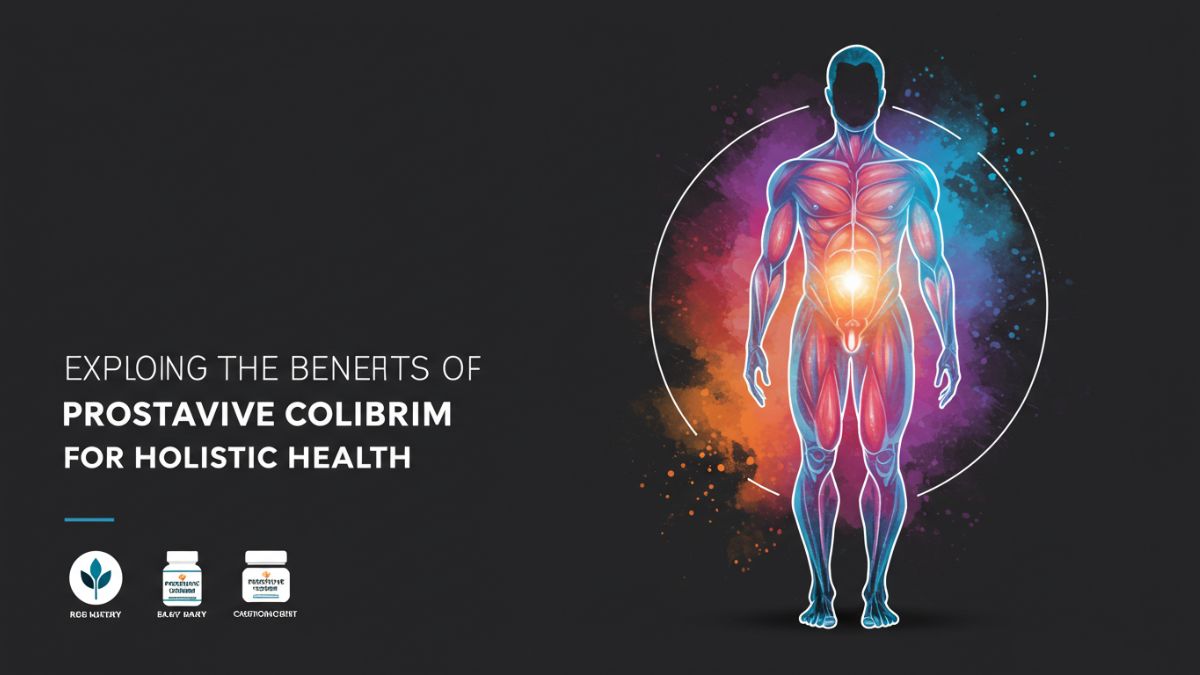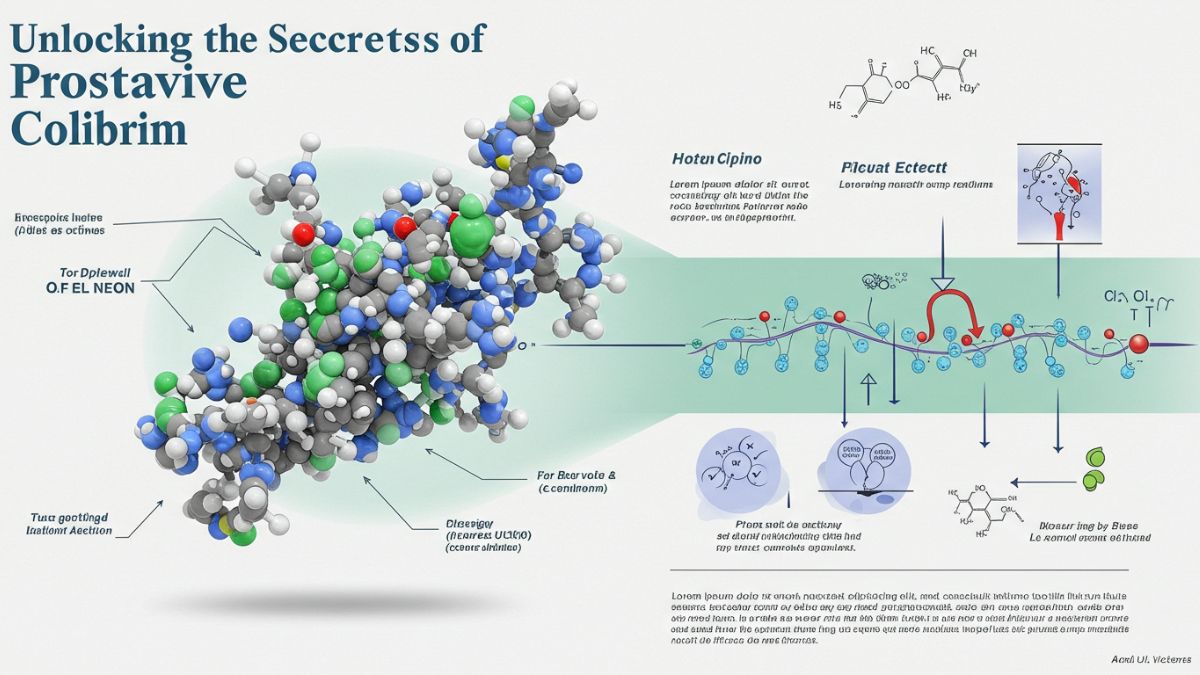HEALTH
The Importance of Better Dental Education in Schools

Despite growing awareness of oral hygiene, many children and adolescents in the UK are still not fully equipped with the knowledge and skills necessary to maintain good dental health throughout their lives. Schools, which are pivotal in shaping the health behaviors of young individuals, currently fall short in delivering comprehensive dental education. The need for better dental education in schools is paramount, as it could significantly reduce oral health issues among future generations, enhance self-esteem, and promote lifelong healthy habits.
The Current State of Oral Health Education in Schools
The current curriculum in most schools touches upon general health and hygiene but offers limited specific education on dental care. This leaves a gap in children’s understanding of crucial practices like proper brushing techniques, the impact of diet on oral health, and the importance of regular dental visits. Studies show that oral diseases, such as tooth decay and gum disease, are among the most common chronic conditions affecting children, yet these conditions are largely preventable with proper knowledge and care.
While some local authorities and schools occasionally bring in professionals to give talks on oral health, these efforts are often sporadic and inconsistent. As a result, children may not be receiving the information they need in a structured or repeated manner, which is necessary for developing good long-term habits. A formalized and regular approach to dental education within schools could significantly improve this situation.
Probably the best cosmetic dentist London has to offer, Dr. Sahil Patel from the Marylebone Smile Clinic emphasizes the importance of early dental education: “Instilling good dental habits in children from a young age can help prevent many of the issues we see in adults today, such as enamel erosion, cavities, and gum disease. School-based education programs provide an excellent platform to reach children, especially in communities where dental care is less accessible.”
The Benefits of Better Dental Education
Prevention of Dental Problems
Prevention is always better than cure, and nowhere is this truer than in dental health. Many common dental problems, such as cavities, gum disease, and enamel erosion, can be prevented with proper care and early intervention. Children who are taught to brush and floss properly, understand the importance of limiting sugary foods and drinks, and learn about the necessity of regular dental check-ups are far more likely to avoid these issues as they grow older.
The National Health Service (NHS) spends millions annually on dental treatments that could have been prevented through better oral hygiene. Early education can significantly reduce these costs by promoting preventive care from a young age. Schools are the ideal place for this education, as they provide a structured environment where children can learn and practice good habits consistently.
Improved General Health
Oral health is closely linked to overall health. Conditions such as heart disease, diabetes, and respiratory infections have been associated with poor dental hygiene. Educating children about the importance of oral health can contribute to better general health outcomes in adulthood. By teaching children how to care for their teeth and gums, schools can play a key role in promoting broader health and well-being.
Additionally, issues such as tooth decay and gum disease can cause significant pain and discomfort, leading to missed school days and lower academic performance. According to Public Health England, children with poor oral health are more likely to miss school, and these absences can impact their education and future opportunities.
Boosting Self-Esteem and Confidence
Oral health has a direct impact on appearance, which in turn can affect self-esteem and confidence, particularly during adolescence. Dental issues like discolored or crooked teeth can lead to embarrassment and social anxiety, causing children to avoid smiling or participating in social activities. In some cases, these issues may even contribute to bullying and isolation.
By equipping children with the knowledge and resources to take care of their teeth, schools can help them maintain a healthy and attractive smile, which is essential for building confidence. Cosmetic dentistry services, such as veneers in London, can also provide solutions for those dealing with severe aesthetic concerns. However, early education in dental health can help reduce the need for these services later in life.
Reducing Socioeconomic Inequality in Health
There is a well-documented link between socioeconomic status and oral health. Children from lower-income families are more likely to experience dental problems due to limited access to dental care and poor diet. By incorporating dental education into school curricula, we can help level the playing field, ensuring that all children, regardless of their background, have access to the information they need to maintain good oral health.
Schools are an important equalizer, offering a setting where every child can be taught the same fundamental skills for maintaining their health. Better dental education can help bridge the gap in oral health outcomes between different socioeconomic groups, reducing the long-term impact of poverty on health.
What Should Better Dental Education Include?
For dental education to be truly effective, it needs to cover a range of topics and be delivered in an engaging, age-appropriate manner. Key areas that should be included in a comprehensive school-based dental education program are:
Basic Oral Hygiene Practices
Children need to learn the correct way to brush and floss their teeth, as well as the importance of doing so twice a day. Demonstrations, hands-on activities, and regular practice sessions can help reinforce these habits.
The Role of Diet in Oral Health
The impact of diet on oral health is significant, yet many children (and adults) don’t fully understand the connection. Education should include information on how sugar and acidic foods can lead to tooth decay and erosion, and encourage healthier food and drink choices.
The Importance of Regular Dental Check-ups
Regular visits to the dentist are essential for maintaining oral health, yet many children only go to the dentist when there’s a problem. Schools can emphasize the importance of preventive check-ups and help demystify the process, so children don’t grow up fearing the dentist.
Understanding Dental Diseases
Children should be taught about common dental diseases, such as cavities and gum disease, and how these conditions develop. Understanding the consequences of poor oral hygiene can serve as a powerful motivator for taking care of their teeth.
The Role of Cosmetic Dentistry
While the focus of school-based dental education should be on preventive care, it’s also helpful for children to understand the role of cosmetic dentistry, especially as they grow older. Many individuals may seek treatments from a cosmetic dentist in London later in life to address issues such as misaligned teeth or discoloration. Knowing that these options exist can help individuals make informed choices about their dental health.
How Schools Can Implement Dental Education
To successfully implement dental education, schools need support from both the government and the dental community. Government agencies such as Public Health England can play a role in developing standardized curricula and providing resources for teachers. Local authorities could also offer incentives for schools to include dental education as part of their health and well-being programs.
Collaboration with dental professionals is also crucial. Dentists and dental hygienists can visit schools to deliver presentations, offer dental screenings, and provide practical demonstrations of brushing and flossing techniques. Schools could partner with local dental practices or clinics to make these visits a regular occurrence. This collaboration ensures that children receive accurate, up-to-date information from qualified professionals.
Furthermore, incorporating dental education into the school day doesn’t need to be complicated. Lessons could be integrated into existing health or science classes, or even delivered as part of assemblies or special health weeks. The goal should be to make dental health a routine part of school life, just like learning about nutrition or physical exercise.
The Long-Term Impact of Better Dental Education
Improving dental education in schools can have far-reaching benefits. Children who are taught good oral health habits from a young age are more likely to carry these habits into adulthood, reducing their risk of dental problems and improving their overall quality of life. A healthier population also reduces the burden on the NHS and leads to a more productive society, as fewer individuals suffer from pain, discomfort, or the need for extensive dental treatments.
Moreover, better dental education can contribute to a cultural shift, where good oral health is seen as a priority rather than an afterthought. As more children grow up understanding the importance of dental care, we may see a reduction in the stigma associated with dental issues and a greater appreciation for the role of cosmetic dentistry in maintaining both health and appearance.
In conclusion, better dental education in schools is not just an option—it’s a necessity. With oral health playing such a crucial role in overall well-being, schools must take on the responsibility of teaching children the skills they need to care for their teeth. Whether through partnerships with local dental practices, such as those offering services like veneers in London, or through government support, there are many ways that schools can step up their dental education efforts. The long-term benefits, both for individuals and for society, are too significant to ignore.
HEALTH
Is Teeth Whitening Safe? What You Should Know

Teeth whitening is one of the most popular cosmetic dental treatments today. It helps remove stains and discoloration, giving you a brighter, more confident smile. However, many people wonder whether teeth whitening is safe and what potential risks it may involve.
Is Teeth Whitening Safe?
Yes, teeth whitening is generally safe when done correctly and under the supervision of a dental professional. However, certain factors determine the safety and effectiveness of the treatment.
1. Professional vs. Over-the-Counter Whitening
- Professional Whitening: Performed by a dentist, this method ensures the safest and most effective results. It uses high-quality bleaching agents while protecting your gums and enamel.
- Over-the-Counter Products: Whitening strips, toothpaste, and gels can be effective but may lead to sensitivity or uneven results if not used properly.
2. Potential Side Effects
While teeth whitening is safe, some people may experience minor side effects, including:
- Tooth Sensitivity: Whitening agents can temporarily make your teeth more sensitive to hot and cold.
- Gum Irritation: If the bleaching agent comes in contact with the gums, it may cause mild irritation.
- Uneven Whitening: Existing dental work like crowns or fillings will not whiten, leading to color inconsistencies.
How to Whiten Teeth Safely
1. Consult a Dentist First
Before starting any whitening treatment, it’s best to consult a dentist to assess your oral health and recommend the best approach.
2. Use ADA-Approved Products
When using at-home whitening kits, always look for products approved by the American Dental Association (ADA) to ensure safety.
3. Follow Instructions Carefully
Overuse of whitening products can damage enamel and cause long-term sensitivity. Always follow the recommended usage guidelines.
4. Maintain Good Oral Hygiene
To keep your teeth naturally white:
- Brush twice a day with fluoride toothpaste.
- Floss daily to remove plaque buildup.
- Avoid foods and drinks that stain teeth, such as coffee, tea, and red wine.
Teeth Whitening for Younger Patients
Teeth whitening is generally not recommended for children and teenagers, as their enamel is still developing. If you’re considering whitening options for your child, consult a Pediatric Dentist in Fredericksburg, VA to explore safe alternatives.
Conclusion
Teeth whitening is a safe and effective way to enhance your smile when done correctly. Professional treatments offer the best results with minimal risks, while at-home options should be used cautiously. Always consult a dentist before starting any whitening regimen to ensure the safety and health of your teeth.
HEALTH
Exploring the Benefits of Prostavive Colibrim for Holistic Health

Enter prostavive colibrim, a supplement designed to support holistic health by focusing on prostate health through natural and complementary ingredients. But what exactly sets Prostavive Colibrims apart, and why is it rapidly gaining popularity? This post unpacks the key benefits, addresses common questions, and explores how this formula aligns with a holistic approach to health.
If you’re looking to take charge of your wellness in a comprehensive way, read on to discover how Prostavive Colibrims can play a role in your overall health strategy.
Why Prostate Health Should Be a Priority in Holistic Wellness
When we talk about holistic health, we mean the balance of the mind, body, and spirit. Prostate health is an often-overlooked piece of this puzzle. This small gland plays a significant role in men’s reproductive health, as well as urinary function. However, as men age, the prostate gland becomes prone to issues such as inflammation, benign prostatic hyperplasia (BPH), and other complications.
By prioritizing prostate health, men can improve not only physical wellness but also their mental well-being. After all, ongoing discomfort, frequent urination, and other symptoms have the potential to disrupt sleep, lower confidence, and create long-term health consequences.
Prostavive Colibrim provides a proactive and natural solution, aligning with the principles of holistic health by addressing the root causes of these issues instead of just their symptoms.
What Is Prostavive Colibrim?
Prostavive Colibrim is a dietary supplement made with natural, scientifically-backed ingredients designed to promote prostate health while supporting overall wellness. It combines the best of herbal medicine and modern nutrition science, providing targeted support for the prostate while delivering additional health benefits like enhanced energy and reduced inflammation.
Unlike conventional treatments for prostate concerns, Prostavive Colibrims focuses on prevention and long-term care by incorporating ingredients known for their ability to address oxidative stress, improve immune health, and maintain hormonal balance.
Key Benefits of Prostavive Colibrim
1. Supports Prostate Function
A healthy prostate translates to better urinary flow, reduced nocturnal urination, and a stronger sense of comfort throughout the day. Prostavive Colibrim’s carefully curated formula includes plant-based ingredients that help reduce inflammation, shrink an enlarged prostate, and maintain healthy function over time.
2. Reduces Chronic Inflammation
Chronic inflammation is a significant contributor to prostate issues, whether it’s BPH or prostatitis. Prostavive Colibrims incorporates powerful anti-inflammatory compounds like beta-sitosterol and saw palmetto extract to decrease inflammation at its source.
3. Promotes Hormonal Balance
Aging leads to hormonal shifts, including imbalances in testosterone and dihydrotestosterone (DHT) levels, which can negatively impact the prostate. Prostavive Colibrim helps balance these hormones naturally, mitigating the risk of further complications.
4. Boosts Immune System Health
Your immune system fights toxins, pollutants, and free radicals that can worsen prostate issues. Ingredients like zinc, selenium, and vitamin E in Prostavive Colibrims not only promote immunity but also aid cellular repair.
5. Enhances Holistic Energy
By targeting inflammation and oxidative stress, Prostavive Colibrim helps improve overall energy levels, leaving you feeling revitalized and more in control of your body.
6. Fewer Side Effects Than Traditional Treatments
Some conventional medications prescribed for prostate health may come with unwanted side effects, such as dizziness, headaches, or even a lower libido. Prostavive Colibrims provides a more natural alternative to aid in symptom relief without compromising overall well-being.
How Does Prostavive Colibrim Work?
Prostavive Colibrim works by addressing the root causes of prostate challenges and leveraging its nutritional properties for holistic health benefits. Here’s how its core ingredients perform:
- Saw Palmetto Extract – A widely respected herb in prostate health, saw palmetto works to reduce symptoms of BPH, relax the bladder, and support healthy hormone levels.
- Beta-Sitosterol – Found in various fruits and vegetables, this plant compound improves urinary flow and supports prostate health by combating inflammation.
- Zinc and Selenium – These essential minerals play a vital role in DNA repair while boosting immune function.
- Vitamin E – Known for its antioxidant properties, vitamin E fights free radicals, reducing the damage caused by oxidative stress.
- Plant-Based Omega Fatty Acids – These naturally occurring fats help reduce inflammation while improving cardiovascular health—another vital aspect of holistic wellness.
Together, these ingredients provide a multi-pronged approach to addressing prostate health concerns.
How to Incorporate Prostavive Colibrim into Your Routine
Introducing Prostavive Colibrims into your daily schedule is simple. Take the recommended dosage (as outlined on the product’s packaging) alongside a balanced diet and plenty of water. Want to further enhance its effects? Pair it with these practices:
- Regular Exercise: Physical activity improves circulation and helps keep body systems—including the prostate—functioning optimally.
- Eating a Plant-Rich Diet: Incorporate foods high in antioxidants and healthy fats, such as berries, leafy greens, and nuts.
- Stress Management: High stress levels can aggravate inflammation. Mindfulness practices like meditation and yoga can help.
What Sets Prostavive Colibrim Apart?
What makes Prostavive Colibrim stand out in a crowded market of wellness supplements?
- Natural Ingredients: You’ll find no synthetic additives or fillers here.
- Scientifically Backed Formula: Every ingredient is carefully selected based on clinical research.
- Holistic Approach: Prostavive Colibrims goes beyond treating prostate symptoms by promoting overall health and wellness.
- Customer Satisfaction: Numerous testimonials praise the supplement for its efficiency and noticeable results.
Real-Life Testimonials
“I’ve tried many products over the years, but Prostavive Colibrim truly changed my life—no more sleepless nights or constant bathroom trips.” – James T., 52.
“I was skeptical at first, but I’ve noticed a significant improvement after just two months. It’s a game-changer for my energy and focus too!” – Alan K., 47.
Is Prostavive Colibrim Right for You?
If you’re someone aiming to take charge of their prostate health while supporting holistic well-being, Prostavive Colibrim may be exactly what you’re looking for. Its commitment to natural, scientifically backed solutions ensures you’re giving your body the best tools to thrive.
Things to Consider Before Starting
Before beginning a new supplement, consult with your healthcare professional, especially if you’re currently taking medication or managing any chronic conditions. A doctor can help confirm whether Prostavive Colibrims is the right fit for your health routine.
Conclusion
Prostavive Colibrim offers a natural and effective approach to supporting prostate health and overall wellness. With its scientifically formulated ingredients and dedication to quality, it provides a trustworthy option for men seeking to improve their health. Remember, adopting a holistic health routine that includes a balanced diet, regular exercise, and proper medical guidance complements the benefits of supplements like Prostavive Colibrims. Take the step toward prioritizing your well-being today!
FAQ’s
1. What is Prostavive Colibrim used for?
Prostavive Colibrim is a dietary supplement designed to support prostate health and overall wellness in men. Its natural ingredients target common prostate concerns, promoting improved urinary function and comfort.
2. How should I take Prostavive Colibrim?
It is recommended to follow the dosage instructions provided on the product label or consult with your healthcare provider for personalized advice. Typically, taking the supplement with a meal and water is advised for optimal absorption.
3. Are there any side effects?
Prostavive Colibrim is formulated with natural ingredients, minimizing the likelihood of side effects. However, some individuals may experience mild reactions depending on their specific sensitivities. Always consult your doctor if you have concerns or are taking other medications.
HEALTH
Unlocking the Secrets of prostavive colibrim: Uses, Effects, and More

Prostavive colibrim has emerged as a prominent name in the wellness landscape, particularly for those seeking to support prostate health. But what exactly is Prostavive Colibrims? How does it work, and what benefits can it offer? Whether you’re exploring it for yourself or researching on behalf of a loved one, this comprehensive guide will walk you through its uses, effects, and key benefits. By the end, you’ll have a clear understanding of how it may fit into your wellness routine.
What is Prostavive Colibrim?
Prostavive Colibrim is a specialized dietary supplement designed to support prostate health. Crafted with natural, science-backed ingredients, it aims to address common prostate health concerns that men often face as they age. With a focus on inflammation reduction and urinary health, Prostavive Colibrims is becoming a sought-after choice for men looking to improve their overall well-being.
At its core, Prostavive Colibrims combines traditional herbal knowledge with modern research. This fusion not only ensures its safety but also maximizes efficacy, making it a trusted option for prostate care.
Why is Prostate Health Important?
The prostate is a small gland that plays a significant role in male reproductive health. However, with age, men may encounter challenges such as prostate enlargement, discomfort, or urinary difficulties. Studies show that around 50% of men over 50 will experience some degree of prostate health issues, with the number increasing as they age.
Unmanaged prostate concerns can lead to lifestyle disruptions, decreased comfort, and even impact confidence. Prostavive Colibrims is specifically formulated to address these concerns, allowing men to take proactive steps in maintaining a high quality of life.
Core Ingredients of Prostavive Colibrim
One of the standout features of Prostavive Colibrim is its carefully selected ingredients. Each component is included for its contribution to prostate health and overall well-being. Here is a breakdown of key ingredients and their benefits:
Saw Palmetto Extract
- What it does: Known for its potential to reduce symptoms associated with benign prostatic hyperplasia (BPH), Saw Palmetto may help minimize frequent urination and support comfortable bladder control.
- Scientific backing: Research has shown that Saw Palmetto can inhibit the enzyme responsible for DHT production, which contributes to prostate enlargement.
Beta-Sitosterol
- What it does: This plant compound is widely praised for its ability to improve urinary flow and reduce inflammation within the prostate.
- Scientific backing: Studies suggest that Beta-Sitosterol significantly improves symptoms of BPH, making it a core component of many prostate health supplements.
Zinc
- What it does: Zinc is vital for maintaining prostate tissue integrity and overall immune health.
- Scientific backing: Men with prostate health challenges often show lower zinc levels, highlighting its importance for supplementation.
Pygeum Africanum
- What it does: Derived from African prune tree bark, Pygeum Africanums has anti-inflammatory properties that ease urinary symptoms.
- Scientific backing: Clinical studies reveal that Pygeum is effective in reducing prostate-related discomfort and enhancing urinary function.
Pumpkin Seed Oil
- What it does: Packed with antioxidants and essential fatty acids, pumpkin seed oil supports urinary tract health and reduces inflammation.
- Scientific backing: Research indicates that pumpkin seed oil significantly benefits men with urinary difficulties related to an enlarged prostate.
Prostavive Colibrims formula is rounded out with herbal extracts, vitamins, and minerals that work synergistically to offer a holistic approach to prostate health.
Benefits of Prostavive Colibrim
Prostavive Colibrim not only supports prostate health but brings several additional benefits to the table. Here are some of the standout advantages:
1. Improved Urinary Function
Difficulty in urination, frequent bathroom trips, and nighttime awakenings are common issues for men with prostate concerns. Prostavive Colibrims helps address these by improving urinary flow and bladder control.
2. Reduced Prostate-Related Discomfort
The anti-inflammatory properties of its ingredients provide relief from prostate-associated discomfort, fostering day-to-day comfort and uninterrupted sleep.
3. Hormonal Balance
With its ability to inhibit DHT—a hormone linked to prostate issues—Prostavive Colibrims contributes to better hormonal regulation and overall health.
4. Natural and Safe Formula
Prostavive Colibrim is free from harmful chemicals or synthetic additives. Its natural composition ensures it is gentle on the body and safe for long-term use.
5. Enhanced Overall Wellness
With additional benefits such as immune support, improved energy levels, and antioxidant protection, Prostavive Colibrims is more than just a prostate health supplement—it’s a comprehensive wellness tool.
How to Use Prostavive Colibrim
For optimal results, Prostavive Colibrim is typically taken as a once-daily supplement. It is recommended to follow the dosage instructions provided on the label or as advised by your healthcare professional. Consistency is key in seeing results, so make Prostavive Colibrims a part of your daily routine.
Tips for Maximizing Benefits:
- Pair Prostavive Colibrim with a balanced diet rich in whole foods and low in processed sugars.
- Stay hydrated and incorporate regular exercise, as both contribute to prostate and overall health.
- Consider regular check-ins with your healthcare provider to monitor progress.
Are There Any Side Effects?
Prostavive Colibrim is formulated with safety in mind and features naturally derived ingredients. Most users report no significant side effects. However, as with any supplement, some individuals may experience mild symptoms such as stomach discomfort or allergic reactions. If you have any concerns or pre-existing health conditions, consult with a healthcare professional before use.
Is Prostavive Colibrim Right for You?
If you’re a man looking to take control of your prostate health, Prostavive Colibrim could be the solution you’ve been searching for. It is particularly beneficial for:
- Those experiencing urinary difficulties or enlarged prostate symptoms.
- Individuals seeking a natural approach to prostate care.
- Men prioritizing overall wellness and aiming to improve their quality of life.
When combined with a proactive health regimen, Prostavive Colibrims offers a reliable pathway to prostate health and beyond.
Take the Next Step Toward Prostate Health
Propathy concerns are common but manageable. With Prostavive Colibrims, you can make a proactive choice toward improved well-being and comfort. Its powerful blend of scientifically-backed ingredients offers real-world benefits for those seeking better prostate health.
Conclusion
Investing in your health is one of the most significant decisions you can make, and Prostavive Colibrim is here to support you every step of the way. Its advanced formulation, rooted in science and care, empowers you to take control of your prostate health with confidence. Don’t wait for discomfort to disrupt your life—start building a foundation of wellness today. Choose Prostavive Colibrim and experience the tangible benefits of a healthier, more balanced future. With the right tools and commitment, improved prostate health is within your reach.
FAQ’s
What is Prostavive Colibrim?
Prostavive Colibrim is a scientifically formulated supplement designed to support and promote optimal prostate health. It leverages natural ingredients to help reduce discomfort and enhance overall well-being.
How do I take Prostavive Colibrim?
For best results, take the recommended dosage provided on the packaging or as directed by your healthcare professional. Consistency is key to experiencing its full benefits.
Are there any side effects?
Prostavive Colibrim is made with carefully selected natural ingredients and is generally well-tolerated. However, as with any supplement, consult your healthcare provider before use, especially if you have existing medical conditions or take other medications.
-

 GENERAL1 year ago
GENERAL1 year agoDiscovering the Artistic Brilliance of Derpixon: A Deep Dive into their Animation and Illustration
-

 Posts1 year ago
Posts1 year agoSiegel, Cooper & Co.
-

 Lifestyle1 year ago
Lifestyle1 year agoPurenudism.com: Unveiling the Beauty of Naturist Lifestyle
-

 Lifestyle1 year ago
Lifestyle1 year agoBaddieHub: Unleashing Confidence and Style in the Ultimate Gathering Spot for the Baddie Lifestyle
-

 HEALTH1 year ago
HEALTH1 year agoTransformative Health Solutions: Unveiling the Breakthroughs of 10x Health
-

 Entertainment1 year ago
Entertainment1 year agoGeekzilla Podcast: Navigating the World of Pop Culture, Gaming, and Tech
-

 Entertainment1 year ago
Entertainment1 year agoKhatrimaza Unveiled: Exploring Cinematic Marvels and Entertainment Extravaganza
-

 BUSINESS1 year ago
BUSINESS1 year agoUnlocking the Secrets to Jacqueline Tortorice Remarkable Career and Accomplishments
